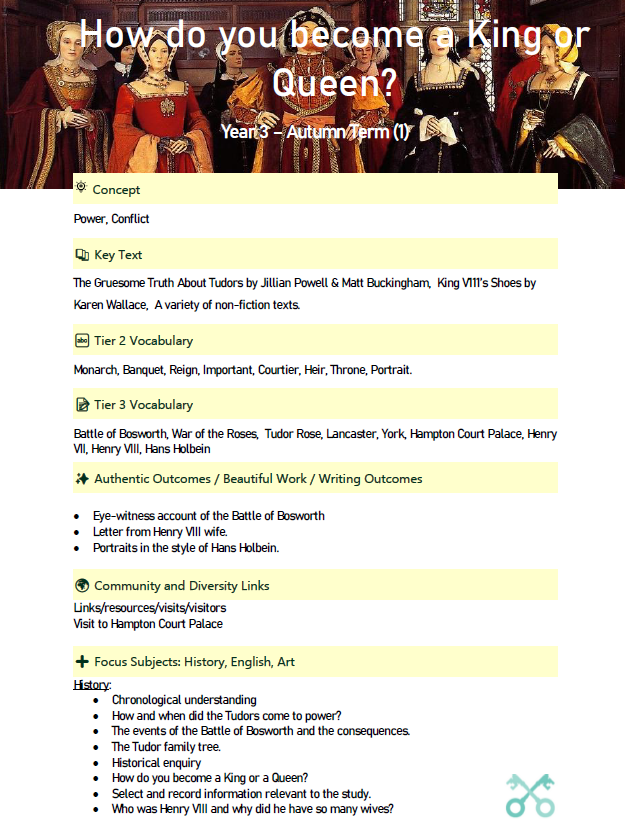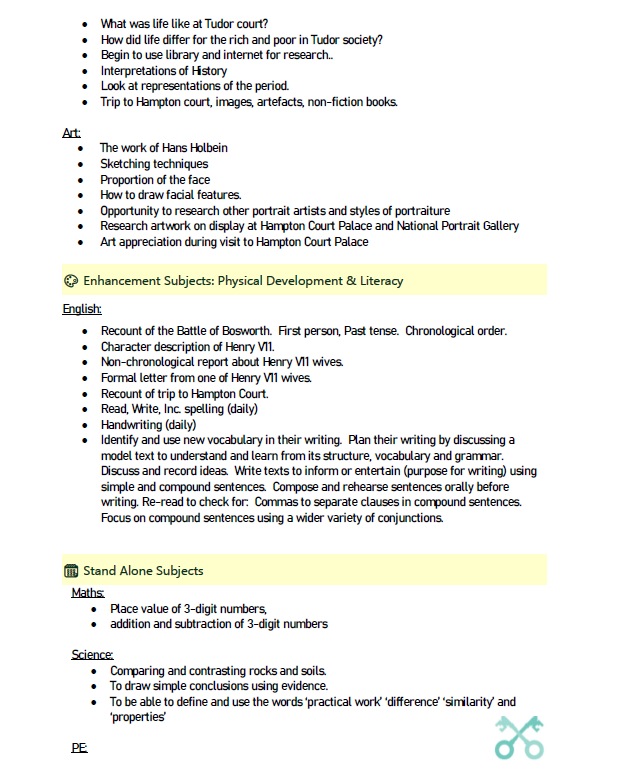CLASS TEACHERS

Sharks Class
(Mon, Tue)

Sharks Class
(Wed, Thurs, Fri)
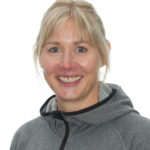
Stingray Class
Teaching Assistants:
Mrs E. Tulip
Our Timetable
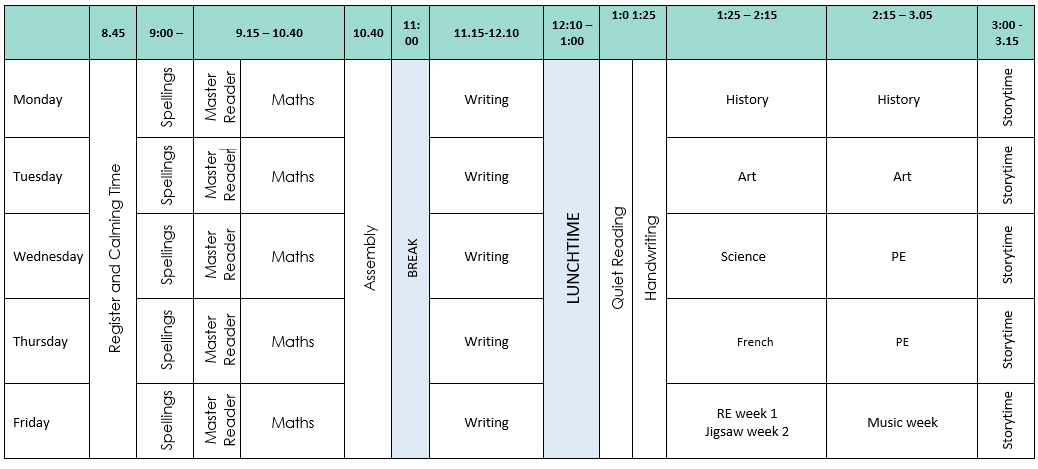
Our Curriculum
Our learning journey in Year 3 is a blend of year group and whole school projects. Below is a short description of each project accompanied by the project planners, which details the key texts, vocabulary, subject coverage and expected outcomes.
Autumn Term
Autumn 1 – How do you become king or queen?
To answer this enquiry question we focus on the Tudors.
We ask key questions such as:
What happened at the Battle of Bosworth?
What was life like at court?
Why did Henry VIII have so many wives?
We look at a range of sources to help us understand and try to answer these questions. In guided reading we look at a range of non-fiction texts, as well as the book King Henry VIII’s Shoes by Karen Wallace. In art, we study the work of Hans Holbein the Younger. We develop our sketching skills and create our own portraits inspired by Holbein. We also visit Hampton Court Palace where we learn about what life was like in Henry VIII’s court.
Autumn 2 – What was it like being evacuated?
This half term we will be looking at the impact of World War 2 on children who were evacuated. We will be role-playing an evacuation and writing emotive diary entries. We will also write free-form poetry about being evacuated.
Our guided reading lessons are based on the book The Lion and the Unicorn by Shirley Hughes. The book follows the life of a young evacuee Lenny and explores the challenges he faces in his new home in the countryside.
For the final two weeks we will have a D.T. focus based around pulleys and levers. We will create moving pictures with a Christmas theme.

Spring Term
Spring 1 – What is darkness?
The whole school begins the Spring Term with a Space project.
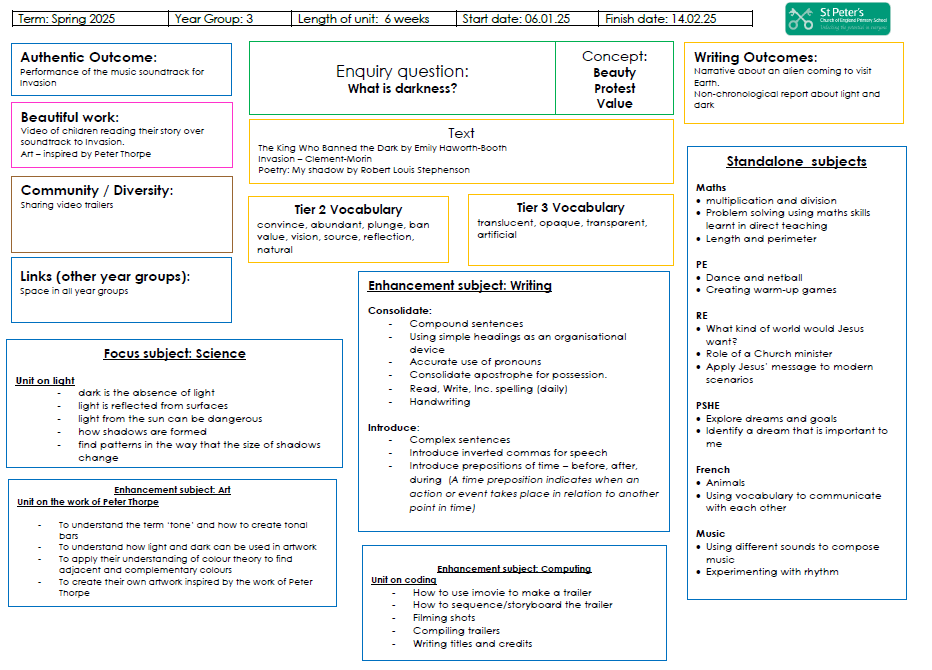
Spring 2 – Why do vertebrates need to look after their skeletons? / What makes Good Friday ‘good’?

Spring 3 – What makes Good Friday good?
For the final three weeks the whole school learn about a different aspect of Easter.
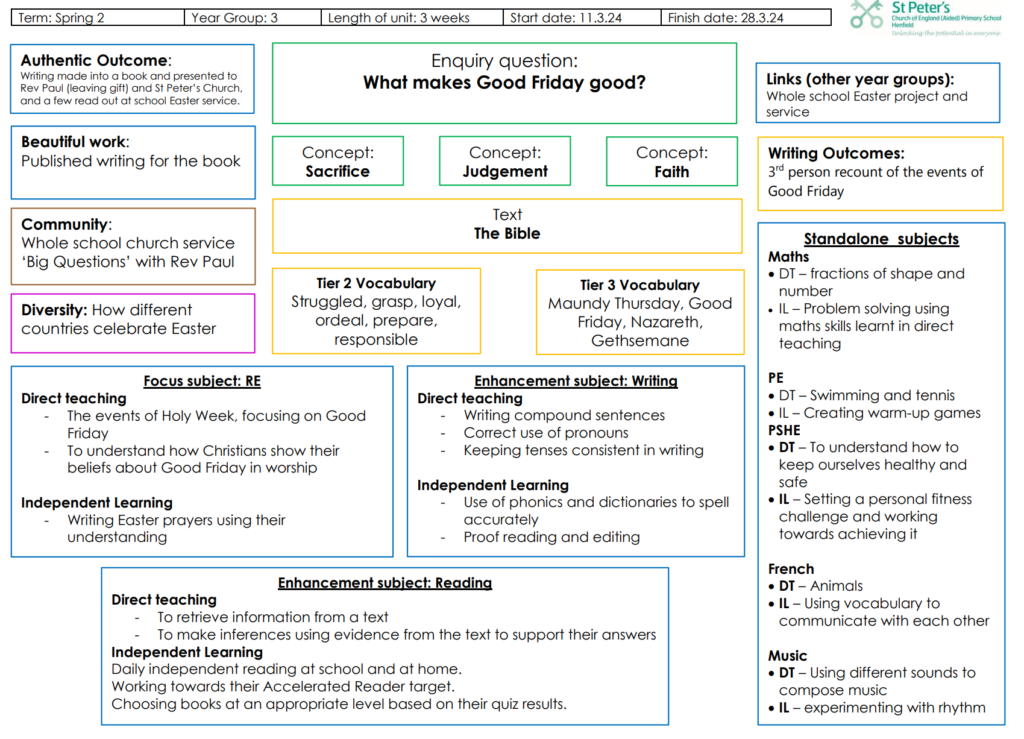
Summer Term
During the Summer Term, the theme for the whole school is ‘Look Around.’ Learning across the whole school is led by Geography.
What makes Europe a diverse continent?

Reading
In Year 3 your child will be developing into an increasingly fluent reader. The focus will now be on building comprehension, but it is still important that children use their phonics skills to tackle new words. Some children will continue to participate in Read, Write Inc phonics groups as needed. There are plenty of opportunities for the children to read for pleasure and we link this to our use of the Accelerated Reader software where children are encouraged to ‘quiz their books in order to reach their targets.
Useful websites include: www.readingeggspress.co.uk
www./worldbook.kitaboo.com/reader/worldbook
Writing
By the end of Y3 a child be able to write down their ideas independently. The grammar and punctuation should be broadly accurate. There is a list of spellings for Year 3 and 4 these can be found on the following website.
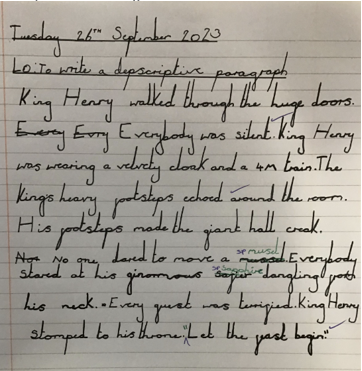
Other useful websites are: www.pobble365.com
www.teachitprimary.co.uk/writing-composition-ks2
Mathematics
In Year 3, your child will develop their mental and written calculation skills numbers up to 1000. This can be a big jump from Year 2, so lots of support is given though the use of concrete resources and pictorial representations. Your child will be introduced to 2-digit multiplication and division, and develop their understanding of fractions. They will convert between units of measurement, find perimeters, and compare angles. By the end of Year 3, your child should be able to tell the time to the minute and calculate durations based on start and end times.
Children learn their 3, 4 and 8 times tables (in addition to 2, 5, and 10 learnt in Year 2).
Useful websites are: https://whiteroseeducation.com/1-minute-maths
www.topmarks.co.uk/maths-games/5-7-years/counting
www.topmarks.co.uk/maths-games/hit-the-button
www.bbc.co.uk/teach/supermovers
www.whiterosemaths.com/resources/schemes-of-learning/primary-sols
www.diagnosticquestions.com/whiterose
Homework
Maths: 20 minutes maths each week. This will alternate between times tables (TT Rockstars or paper equivalent) or practice of work done in class.
Reading: 20 minutes reading each night
Spellings: Weekly spellings practice for a spelling test on Friday
Y3 Correspondence
To find out more about your child’s curriculum please contact your child’s class teacher or click this link to go to the national curriculum.



